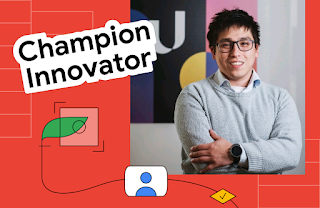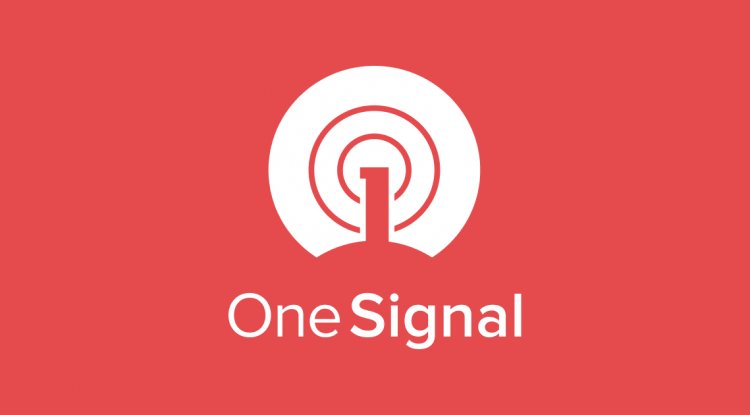Champion Innovator David Cardozo, based in Victoriaville, Quebec
Posted by Max Saltonstall, Developer Relations Engineer Google Cloud Champion Innovators are a global network of more than 500 non-Google professionals, who are technical experts in Google Cloud products and services. Each Champion specializes in one of nine different technical categories: cloud AI/ML, data analytics, hybrid multi-cloud, modern architecture, security and networking, serverless app development, storage, Workspace and databases. In our ongoing interview series we sit down with Champion Innovators across the world to learn more about their journeys, their technology focus, and what excites them. Today we're talking to David Cardozo, a Machine Learning Scientist, Kubeflow Community member and ML GDE. What tech area has you most fascinated right now, and why? I love all the creative ways people are using Machine Learning (ML) to solve problems. There are a ton of cool applications that I see through my consulting work – counting cranberries from drone footag

 Posted by Max Saltonstall, Developer Relations Engineer
Posted by Max Saltonstall, Developer Relations Engineer

Google Cloud Champion Innovators are a global network of more than 500 non-Google professionals, who are technical experts in Google Cloud products and services. Each Champion specializes in one of nine different technical categories: cloud AI/ML, data analytics, hybrid multi-cloud, modern architecture, security and networking, serverless app development, storage, Workspace and databases.
In our ongoing interview series we sit down with Champion Innovators across the world to learn more about their journeys, their technology focus, and what excites them.
Today we're talking to David Cardozo, a Machine Learning Scientist, Kubeflow Community member and ML GDE.
 |
What tech area has you most fascinated right now, and why?
I love all the creative ways people are using Machine Learning (ML) to solve problems. There are a ton of cool applications that I see through my consulting work – counting cranberries from drone footage, tallying fish in fish farms, classifying plastics for recycling – and there's great stuff going on in both the public and private sector.
I'm also digging into the Kubeflow community right now, learning from that group. It's a melting pot of languages: Go, Python, etc. By participating in the working group and meetings I'm understanding so much more about current issues, blockers to progress, and get a deeper understanding of the technology itself. I love gaining that insight.
How do you like to learn new services, tools, and applications?
I read a lot: engineering blogs, books, documentation. Right now I'm learning system design from a variety of Google blogs, which helps me learn how to scale up the things I design. I'm also learning how to make ML models, and how to improve the ones I've deployed.
I'm passionate about contributing to the open source community and actively participate in various projects. Right now with friends in the community we developed Elegy – a high level API for Deep Learning in JAX.
Writing about a topic also helps me learn. Right now, I am working on blogs focused on Kubeflow pipelines in version 2.0 and Vertex AI in Google Cloud.
When I'm diving into a brand new technology I try to join the working groups that are furthering its development, so I get an inside look at how things are moving. Those working groups, their discussions and notes, teach me a ton. I also use the Google Cloud Forum and StackOverflow communities to deepen my knowledge.
What are some exciting projects you have in flight right now?
Getting to play with Generative AI within Vertex (on Google Cloud) has been very fun. I like hearing about what the other Innovators are making; it's a very smart, creative group with cool projects. Learning more about the cutting edge of ML is very exciting.
I'm doing a bit more with Open Source in my free time, trying to understand more around Kubernetes and Kubeflow.
What engages you outside of the technology world?
I stay active: swimming, lots of soccer. I also have been learning about option trading, testing out the waters of active investing. The complexity of those economic systems stimulates my curiosity. I really want to understand how it works, and how to make it useful.
My background is in the social sciences, I'm a bit of a frustrated historian. My interest in school was history, but my family said that I shouldn't focus on social science, so I majored in Math and Physics, but never finished my degree. Right now, after a few life and career pivots, I'm working on completing my Bachelor's through Coursera via the University of London, and earning a history degree requires a lot of reading. This has inspired me to make an AI project that summarizes the knowledge from very long documents, making history research more accessible by giving people a format that's easier to consume.
What brought you into the Innovators program?
I started as one of the Google Developer Experts, but I always wanted more opportunities to talk with Google engineers and get more feedback on the cloud architectures I was building, for myself or my clients. I also wanted to be more involved in the Cloud community.
When I see members of the community encountering challenges, struggling as I did, I feel the pull to help them. As a native Spanish speaker I wanted to make more content in Spanish for folks like myself. I didn't have a mentor as I was learning, and I'd like to fill that gap for others.
So I began organizing meetups in Latin America, and in Spanish speaking communities. I sought out more data scientists. And I went through Qwiklabs and Cloud Skills Boost to learn to improve my own skills.
After I joined the Innovators program, I've had the chance to play with new AI technologies, work more closely with Google experts and received credits for more Cloud experimentation.
What's one thing our readers should do next?
I recommend using some of the open, public teaching resources in Computer Science (CS), especially if you're like me and didn't focus on CS in school. For me, computers came very late to Colombia and I didn't have a chance to major in CS as a student, so I got into it via Math, then information security.
I also suggest taking a look at Elegy, and being involved in solving first issues, providing feedback and also some pull requests :)
I've liked Stanford's course on Neural Networks (CS 231n), as well as MIT's open courseware classes and ML videos on YouTube by Joel Grus.
Each Champion Innovator is not affiliated with Google nor do they offer services on behalf of Google.
What's Your Reaction?




















